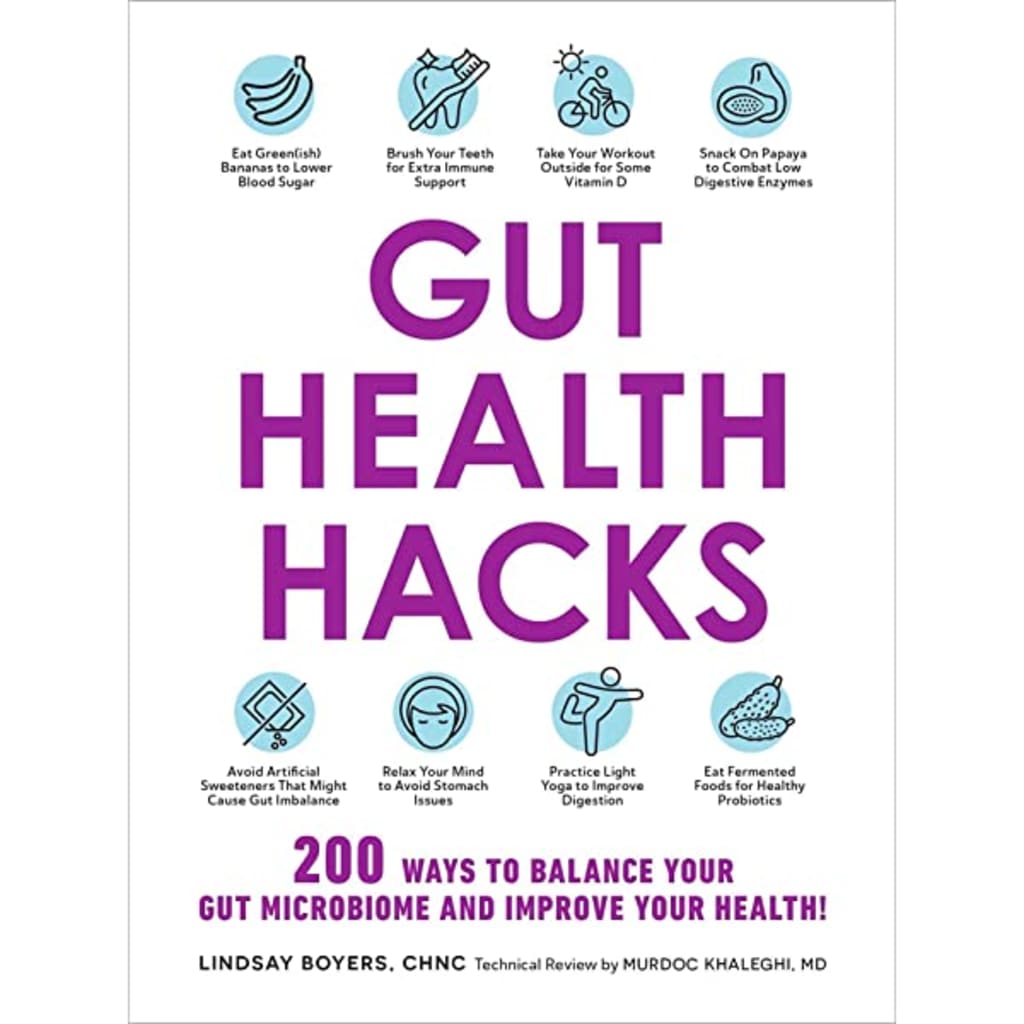Health and Wellness Life Hacks: Simple Tricks for Feeling Your Best
Health and Wellness Life Hacks: Simple Tricks for Feeling Your Best

- Introduction
Living a healthy and happy life is essential for a fulfilling life. However, with the fast-paced world that we live in, it can be challenging to take care of our health and wellbeing. We often find ourselves caught up in the daily grind of work, family, and other responsibilities, leaving little time to focus on ourselves. Fortunately, there are simple life hacks that can help us prioritise our health and wellness without taking up too much time. In this article, we will explore some of the most effective health and wellness life hacks that can help you feel your best.
- Hydrate, hydrate, hydrate.
Staying hydrated is crucial for good health. Drinking enough water helps keep your body functioning properly, improves digestion, and can even help with weight loss. The general rule of thumb is to drink at least eight glasses of water a day, but this may vary depending on your activity level, age, and overall health. To make sure you're getting enough water, carry a reusable water bottle with you and sip throughout the day.
- Prioritize Sleep
Sleep is essential for good health, and most people need between 7 and 9 hours of sleep each night. Getting enough sleep can improve your mood, memory, and even your immune system. To prioritise sleep, establish a bedtime routine that includes winding down activities such as reading a book or taking a warm bath. Also, create a sleep-conducive environment by making sure your bedroom is cool, quiet, and dark.
Get Moving
Physical activity is important for good health, and it doesn't have to be complicated or time-consuming. Aim for at least 30 minutes of moderate exercise most days of the week. You can take a walk, jog, bike, swim, or do any other activity that you enjoy. Also, try incorporating physical activity into your daily routine, such as taking the stairs instead of the elevator or walking instead of driving short distances.
- Eat a balanced diet.
Eating a balanced diet is crucial for good health. Focus on eating a variety of fruits, vegetables, whole grains, lean proteins, and healthy fats. Try to limit processed and sugary foods, as these can contribute to health problems such as obesity, diabetes, and heart disease. Also, pay attention to portion sizes and try to eat mindfully, savouring each bite and eating slowly.
- Manage Stress
Stress is a part of life, but it's important to manage it to prevent it from taking a toll on your health. There are many ways to manage stress, such as by practising relaxation techniques like deep breathing or meditation, engaging in hobbies or activities that you enjoy, or simply taking a break and doing something you find calming.
- Practice Gratitude
Gratitude is an important aspect of overall wellbeing. Practicing gratitude can help you focus on the positive aspects of life and improve your mood. Take time each day to reflect on the things you're grateful for, whether it's a supportive friend, a beautiful sunset, or a delicious meal.
- Connect with Others
Human connection is important for good health. Spending time with friends and family can boost your mood and reduce stress. If you're feeling lonely or isolated, try joining a club or organisation that interests you or volunteering in your community.
- Practice Self-Care
Self-care is essential for good health and wellbeing. Taking time to care for yourself can help you feel more relaxed and refreshed. Self-care activities can include taking a warm bath, getting a massage, or simply taking a few minutes to read a book or listen to music.
Limit screen time.
Spending too much time on electronic devices such as smartphones, tablets, and computers can have negative effects on your health. Too much screen time can lead to eye
imitate Screen Time Spending too much time on electronic devices such as smartphones, tablets, and computers can have negative effects on your health. Too much screen time can lead to eye
strain, headaches, and disrupted sleep patterns. It's important to limit screen time, especially before bed. Try setting a timer for how long you can spend on your phone or computer each day and making an effort to disconnect and engage in other activities such as reading, going for a walk, or spending time with loved ones.
- Practice Mindfulness
Mindfulness is the practise of being present and aware in the moment. Practicing mindfulness can help reduce stress and anxiety, improve focus and concentration, and promote a sense of calm and relaxation. There are many ways to practise mindfulness, such as meditation, yoga, or simply taking a few minutes to focus on your breathing.
- Take Breaks
Taking breaks throughout the day can help you feel more productive and focused. Studies show that taking short breaks can actually improve productivity and creativity. Try taking a minute break every hour or so to stretch, walk around, or simply take a few deep breaths.
- Practice good posture.
Poor posture can lead to neck and back pain, headaches, and other health problems. Practicing good posture can help prevent these issues and improve your overall health. Make an effort to sit up straight and avoid slouching, and try to take breaks throughout the day to stretch and move your body.
- Laugh More
Laughter is good for your health. It can reduce stress, boost your mood, and even improve your immune system. Make an effort to find humour in everyday situations; watch a funny movie or TV show; or spend time with people who make you laugh.
- Get Outside
Spending time outdoors can have many health benefits. Exposure to natural light can help regulate your sleep-wake cycle, and being in nature can help reduce stress and improve mood. Try to spend at least a few minutes outside each day, whether it's taking a walk in the park or simply sitting outside and enjoying the fresh air.
- Take care of your mental health.
Mental health is just as important as physical health. It's important to take care of your mental health by seeking help if you need it, practising self-care, and engaging in activities that bring you joy and fulfillment. If you're struggling with mental health issues such as depression or anxiety, don't hesitate to seek professional help.
Conclusion
Incorporating these simple health and wellness life hacks into your daily routine can help you feel your best. Remember, taking care of your health and wellbeing doesn't have to be complicated or time-consuming. Small changes can make a big difference in how you feel and function each day. Prioritize your health and make an effort to practise these simple tricks, and you'll be on your way to living a happier, healthier life.





Comments
There are no comments for this story
Be the first to respond and start the conversation.